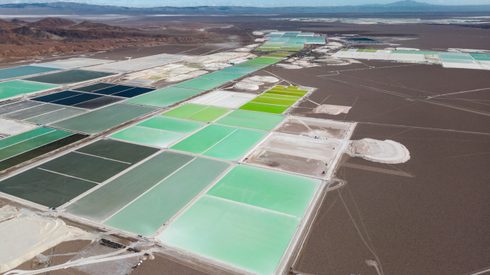The partnership is the latest strategic commercial relationship established by Li-Cycle in an effort to validate its safe and sustainable recycling technology, Louie Diaz, vice president of Marketing & Communications, told Fastmarkets.
Repairing, remanufacturing, repurposing and recycling lithium-ion battery materials used in DTNA EVs is part of the company’s overall commitment to reducing its carbon footprint, DTNA said in a May 20 release.
“Leveraging advanced technology, DTNA can discern when a lithium-ion battery no longer meets DTNA’s high standards required for vehicle use. This insight guides the decision on the optimal process to maximize materials for a second life, with repair taking precedence whenever possible,” DTNA said, adding that its approach “extends to all components of the EV product.”
Li-Cycle will be using its patented Spoke and Hub technologies to assist DTNA on its goal to integrate a comprehensive circular economy approach across its operations to reduce its carbon footprint.
This technology enables Li-Cycle to “safely receive and recycle all lithium-ion batteries regardless of condition, form factor and state-of-charge to produce critical battery materials. Our technology enables up to a 95% recovery rate to return critical materials back to the supply chain,” Diaz told Fastmarkets.
Via Spokes technology, the lithium-ion battery is recycled through a proprietary submerged shredding process to produce plastics, a mixture of aluminum and copper and, importantly, black mass.
“Our patented and environmentally friendly ‘Generation 3’ Spoke technology can directly process all forms of lithium-ion batteries, including full EV battery packs, without the need for discharging, dismantling or using any thermal processes, which enhances safety and efficiency,” Diaz said.
“The ability to remove the need for dismantling and discharging are important value differentiators, especially as battery manufacturing evolves and there are more structured packs for EVs, which cannot be dismantled,” he continued.
Li-Cycle’s Spokes aim for zero emissions and waste
Additionally, Li-Cycle’s Spokes are designed to be zero wastewater discharge facilities and have zero combustion and direct greenhouse gas emissions.
“We are proud to partner with companies such as DTNA to support their sustainability and carbon reduction goals,” Ajay Kochhar, Li-Cycle president and chief executive officer, said in the May 30 release.
“Our environmentally friendly and safe recycling technologies can recover critical materials to help create a domestic closed-loop battery supply chain, giving new life to these battery materials and helping power the world’s transition to clean energy,” he continued.
DTNA’s efforts also include utilizing the existing Detroit Diesel Remanufacturing locations such as their recently expanded Hibbing facility to remanufacture batteries and EV components, as well as a partnership with Nuvation Energy to pilot a battery energy storage system (BESS) to assist in repurposing batteries that cannot be used in a vehicle.
DTNA aims to achieve carbon neutrality for all new products and services from direct suppliers in Europe, the US and Japan by 2039.
Recent lithium carbonate prices
Fastmarkets’ weekly assessment of the black mass, LCO, payable indicator, lithium, cif South Korea, % payable Fastmarkets’ lithium carbonate 99.5% Li2CO3 min, battery grade, spot prices cif China, Japan & Korea was 3-5% on Wednesday May 29, unchanged since December 6.
Fastmarkets’ daily assessment of the lithium carbonate 99.5% Li2CO3 min, battery grade, spot prices cif China, Japan & Korea was $13.50-14.20 per kg on Monday June 3, unchanged from Friday but narrowing downward from $13.50-14.50 a week earlier.
Keep up to date with global market insights and predictions for the battery recycling and black mass market. Talk to us today.






